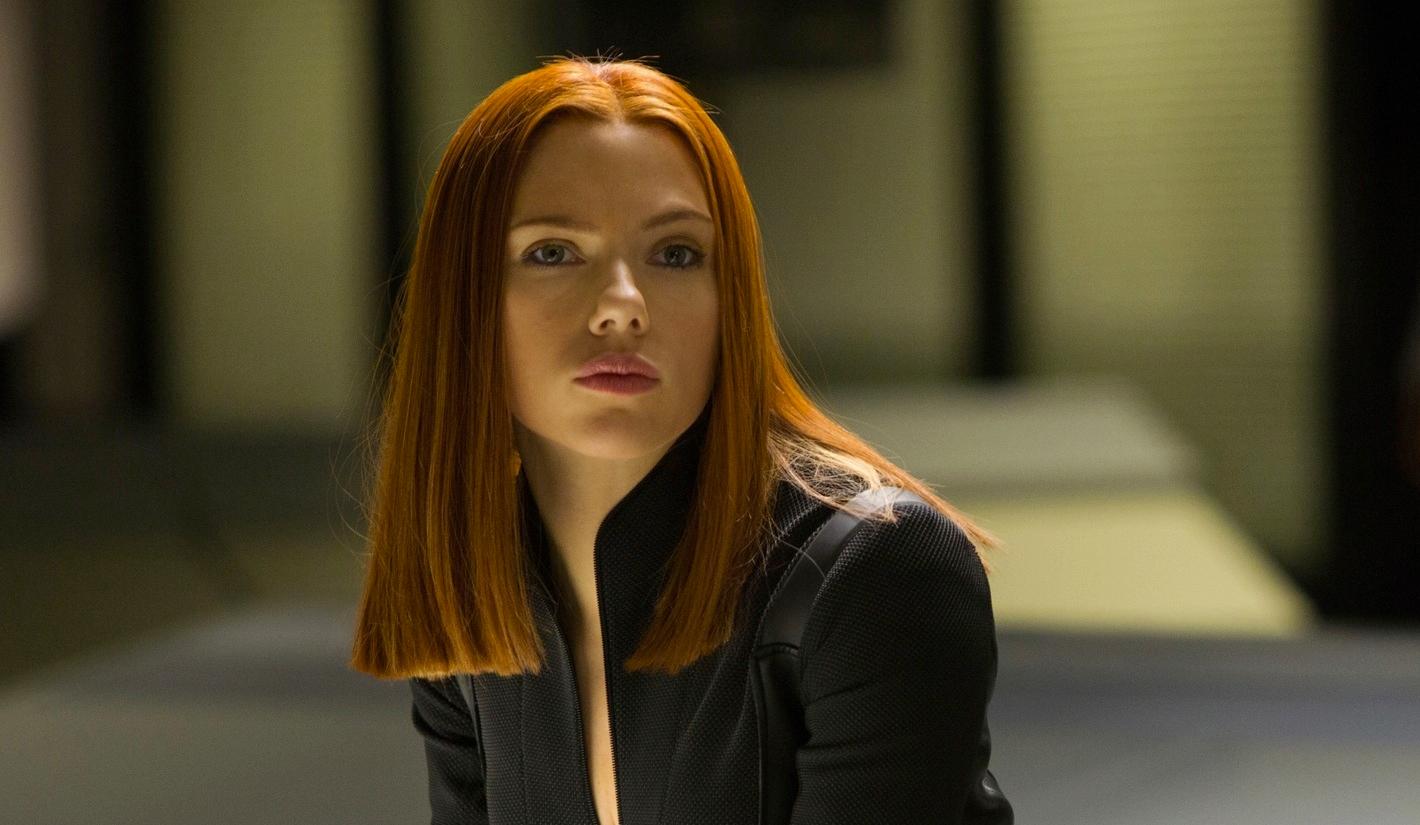In Hollywood, superheroes are still a boy’s club
Scarlett Johansson is Black Widow in Captain America: The Winter Soldier.
In the movie Alien, Sigourney Weaver proved that a woman could save the world — and carry a film to box office success. That was in 1979. Since then, there have been very few action films with women playing lead roles.
The reason, says veteran entertainment journalist Anne Thompson, is pretty simple.
“The studios are really gun-shy on this,” she explains. “Catwoman didn’t work out, and neither did Jennifer Garner when she did Elektra. Women have tried, and they don’t get many opportunities.”
"It's really a question of women not being able to get away with failure," Thompson says. "And the men [studio executives] just don't have confidence."
Fans have waited years for Wonder Woman to have her own movie, but in the next Superman sequel, she’s relegated to a supporting role. Despite fan interest in a Black Widow movie starring Scarlett Johansson — a role Johansson has played in the Marvel movies since 2010 — the head of Marvel Studios has made it clear a film focusing on the heroine is not in the works.
And yet, there are so many recent signs of successful adventure movies with women in leading roles.
In 2013, The Hunger Games: Catching Fire, starring Jennifer Lawrence, was the most successful movie of 2013, ahead of Iron Man 3. Gravity, starring Sandra Bullock, has already made half a billion dollars world-wide — and was seen by more men than women.
“The statistics are so clear,” Thompson says. “Movies aimed at women do really well. [But] over the past 30 years, there’s been no noticeable progress, really. Behind the camera, in terms of the amount of roles that are given to women in a given year, the Hollywood business is so biased toward action that women just don’t get a chance to get a foothold. Angelina Jolie is the great exception.”
Thompson is also bothered by the question of why, when women are in action movies, they are only allowed to behave in certain ways?
“In Hunger Games, [Lawrence’s character] is doing everything in order to save her family. Somehow that’s justified,” Thompson says. “In the case of Gravity, Sandra Bullock is really trying to save herself.”
All of this is very carefully calibrated, she says.
“It was an interesting thing in Gravity,” Thompson adds. “Sandra Bullock was allowed to not be sexy in a weird way. … [S]he was allowed to be an authority figure who was good at her job and vulnerable. So the question is, how do you take Wonder Woman — who’s a very sexy creature — and make her able to carry a heroic movie? And I think that’s what throws everybody off."
Asked if Hollywood may be coming to a moment of change, Thompson laughs.
“I think there’s a lot of consciousness-raising going on,” she says, “and I think that people are trying. It’s going to take a while. I thought, by now, it would have gotten a lot farther than it has. It’s pretty sad.”
Do you want to see female superhero movies or have your own theory of why we are not seeing them? Tell us, below.
This story is based on an interview by PRI's Studio 360 with Kurt Andersen, where you'll find other coverage of popular culture, design and the arts.
Our coverage reaches millions each week, but only a small fraction of listeners contribute to sustain our program. We still need 224 more people to donate $100 or $10/monthly to unlock our $67,000 match. Will you help us get there today?
